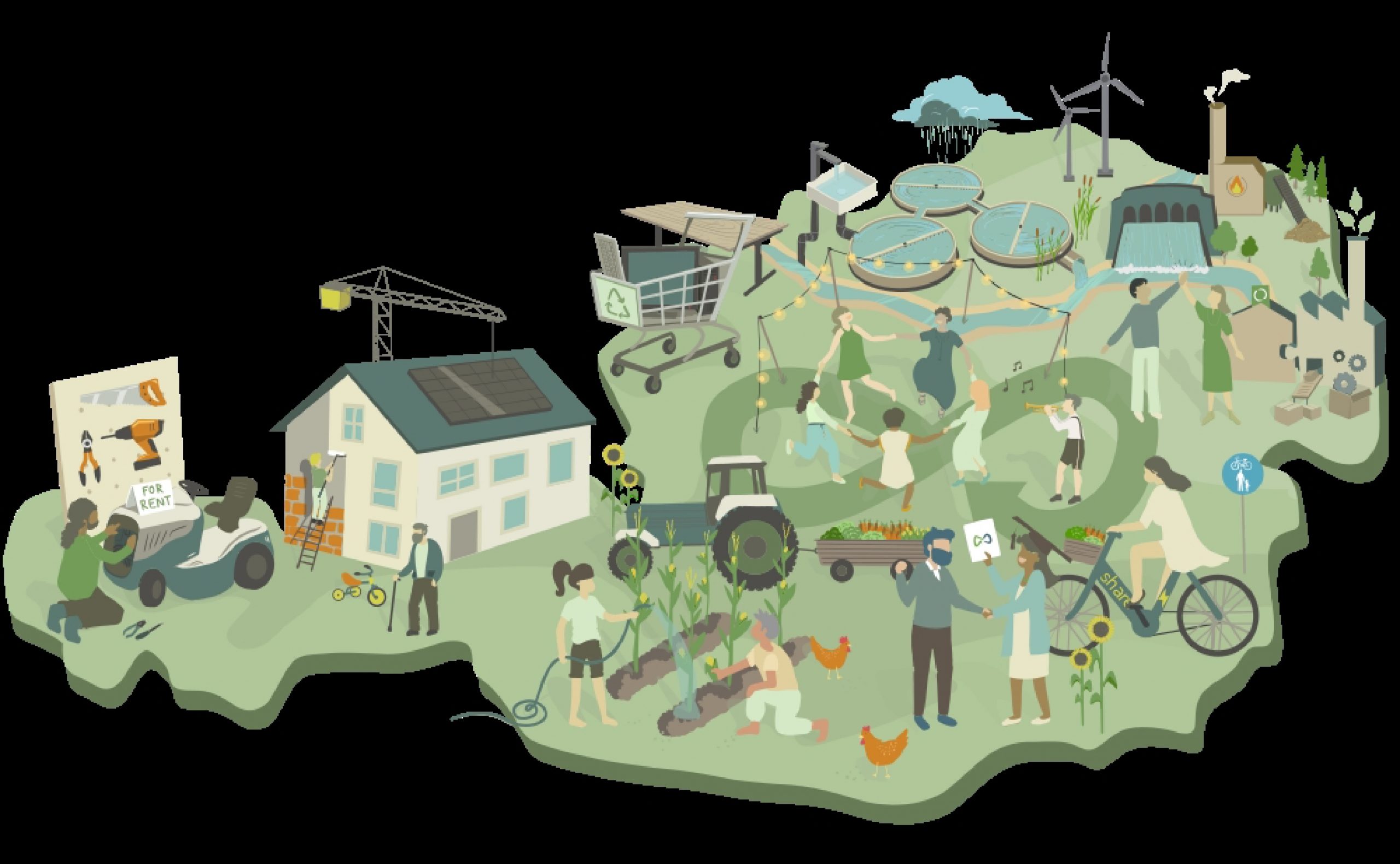
In a circular economy, raw materials and goods are produced in a resource-efficient way that extends the lifespan of products, with the aim of minimising waste and pollutant emissions. Given the climate crisis, transitioning from a linear to a circular economy is becoming increasingly important. This transition requires new skills, which can be developed through training programmes.
Against this backdrop, the study analyses the short-, medium- and long-term qualification requirements for the circular economy and circular production in Austria. It examines current qualification requirements and existing training opportunities, identifies gaps, and demonstrates how the Austrian Research Promotion Agency (FFG)'s instruments can help to fill these gaps.
The study focuses on the seven transformation priorities of the Austrian circular economy strategy: the construction industry and infrastructure; mobility; plastics and packaging; the textile industry; electrical and electronic equipment; information and communication technologies (ICT); biomass; and waste and secondary resources. The study analyses which FFG funding instruments (qualification network, innovation lab and education lab) best meet these needs.
A literature and context analysis was conducted, alongside expert interviews, an online survey and focus groups, to determine the qualification needs. The evaluation was carried out using a specific skills taxonomy for the circular economy.
The results show that the level of knowledge varies across the different skill categories. Sectors that are more heavily involved in the green transformation demonstrate a higher level of knowledge. Training is particularly needed in the areas of remanufacturing, digitalisation and law. Challenges include legal uncertainty and a lack of expertise in monitoring and analysis. There is a demand for management skills, especially those involving creative, networked and interdisciplinary thinking.
Qualification programmes for the circular economy are primarily found in the tertiary education sector. However, there is a lack of specific programmes for advanced students. With regard to available FFG instruments for addressing these needs, qualification networks are suitable for the short-term transfer of skills and innovation, while education laboratories are better suited to medium-term development in the areas of management, design, digitalisation and remanufacturing. The study provides recommendations for FFG instruments to address specific qualification requirements and presents examples of international best practice for future qualification measures.
